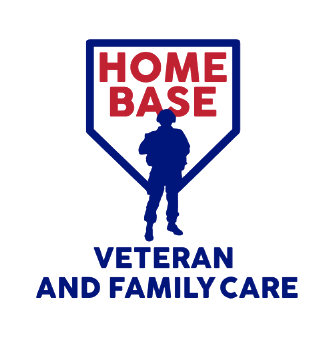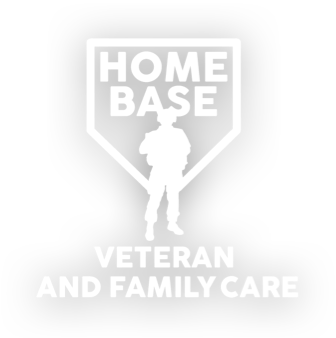Home Base Post-Doctoral Fellowship 2024-2025
APPLICATIONS FOR THE 2024-25 TRAINING PROGRAM ARE CLOSED.
Program Philosophy and Goals
Home Base, a Red Sox Foundation and Massachusetts General Hospital program, is dedicated to healing the invisible wounds – including post-traumatic stress disorder (PTSD), traumatic brain injury (TBI), anxiety, depression, co-occurring substance use disorder (SUD), and family relationship challenges – for Veterans of all eras, Service Members, Military Connected Families and Families of the Fallen through evidence-based clinical care, wellness, education, and research.
The goal of our postdoctoral fellowship program is to provide the advanced clinical training opportunities in the area of Veteran and military family mental health in order for fellows to develop skills required to function as an independent clinical psychologist. Our training program emphasizes a scientist-practitioner approach, wherein current scientific knowledge informs the development and implementation of evidence based practices. Our program is rooted in our core values of honoring individual differences and diversity, collaboration, and education. Our training mission extends beyond preparation for service delivery, and we strive to create an individualized training plan in collaboration with the fellow that meets their training and career goals.
Through training experiences that include didactics, supervision, clinical rounds, observation, and participation in Home Base and MGH Departmental opportunities (see below), fellows participate actively in selecting opportunities that will further their professional development. Our program aims to foster the fellow’s development of a healthy professional identity and core competencies that will allow them to function independently in the field.
Training Site Description
Massachusetts General Hospital
Home Base Program for Veterans, Service Members and Military Families
A multidisciplinary team staffs Home Base, and we are proud to be comprised of Veteran and non-Veteran individuals including psychologists, neuropsychologists, psychiatrists, social workers, physical medicine and rehabilitation physicians, nurses, nurse practitioners, nutritionists, exercise physiologists, and speech and language pathologists. Our shared mission is to improve access to evidence-based mental health treatment with an emphasis on developing and implementing effective and innovative clinical programs. At Home Base, we are committed to embodying values of anti-racism, diversity, equity, inclusion and belonging. We recognize and work collaboratively to address disparities and strive to foster an inclusive team environment in which each person has an experience of being valued and respected regardless of their intersecting identities.
Outpatient Clinic
Home Base’s outpatient clinic provides individual therapy, group therapy, pharmacotherapy and couples therapy to Veterans, Service Members and their families who are struggling with PTSD, mood and anxiety disorders, substance use disorders, deployment- and military-related adjustment concerns, and traumatic brain injuries (TBI).
Intensive Clinical Program (ICP)
The ICP is an innovative 2-week, daily intensive program for Veterans and active-duty Service Members with moderate-to-severe PTSD and/or TBI. During the two weeks, patients receive daily individual and group therapy, weekly pharmacotherapy, and daily fitness and wellness activities. Home Base also offers a 2-week intensive outpatient program for suicide bereaved family members.
In addition to our clinical mission, Home Base promotes research focused on the prevention, diagnosis, and treatment of TBI and stress-related disorders. The program also supports physical health and wellness, provider and community education, and community outreach initiatives.
Fellowship Experience
The Red Sox Foundation and Massachusetts General Hospital Home Base Program is offering a 1-year clinical psychology post-doctoral fellowship program from August 19th, 2024 to August 18th, 2025. This is a clinical fellowship, and the fellow will devote 20-25 hours per week to direct patient care, with the remaining time dedicated to supervision, didactics, training, and program development. There are also opportunities to become involved in research depending on interest and availability of current projects (see below).
Clinical Activities
20-25 hours of direct patient care per week, including
- Conducting intake assessments and providing daily massed PTSD care to 2-3 individual patients in the ICP
- Co-leading group psychotherapies in the ICP (such as DBT skills group, In vivo exposure group, and Introduction to PTSD group)
- Providing outpatient therapy to a caseload of 2-3 patients in the Outpatient Clinic
2-3 hours of indirect patient care activities, including:
- Record reviews
- Documentation of treatment plans and progress notes
- Assessment reports
- Participation in weekly multidisciplinary treatment team meetings to support clinical care
Supervision
Postdoctoral fellows receive a minimum of 2 hours of individual clinical supervision per week by one or more licensed clinical psychologists. Fellows may also receive group supervision, with a maximum of three trainees.
Didactics
Postdoctoral fellows participate in Home Base’s didactics series that occurs weekly throughout the course of the year. Didactic content is designed to further the fellows breadth and depth of competency, with a specific focus on topic areas that impact the veteran and military community. All didactic offerings include diversity, equity and inclusion content that may include, but are not limited to, the following topics:
- Military Culture
- Mandated Reporting
- Suicide and Safety Planning
- Military Sexual Trauma
- Eating Disorders and the Military
- Traumatic Brain Injury
- Sleep Disturbances in Veterans
- Substance Use among Veterans
- Group Dynamics
- Family Systems and Treatment
- Cultural Humility
Postdoctoral Fellows will also have the opportunity to obtain other didactic learning experiences through attending department-wide lectures (e.g., MGH Department of Psychiatry Grand Rounds, MGH Psychology Postdoctoral Professional Development Series). Fellows may participate in other department and/or hospital wide seminars, didactics, and mentoring opportunities based on availability and interest.
Fellowship Training and Development Experiences
The fellowship aims to foster professional growth and competence in the area of Veteran and Military Connected family mental health through the provision of the following training experiences:
- Comprehensive clinical assessment and care of general mental health concerns in Veterans, including PTSD, mood and anxiety disorders, adjustment disorders, grief disorders, TBI, and substance use co-occurrence.
- In depth training in at least one evidence-based treatment (e.g., Prolonged Exposure Therapy, Cognitive Processing Therapy, Unified Protocol)
- Comprehensive assessment and clinical care of general mental health concerns in family members of Veterans, including impact of Veterans’ mental health challenges
Research Opportunities
While this is a clinical fellowship, Postdoctoral Fellows interested in research may elect to pursue studies of interest as a collaborator alongside a current Home Base PI. These opportunities will be determined in collaboration with supervisors based upon fellows’ interests and available bandwidth. Opportunities could include manuscript preparation and submission, panel/poster preparation and submission to regional or national conferences, or becoming involved with ongoing research projects including developing clinical interventions, grant writing etc.
Core Competencies
I. Ethical and Legal standards: Fellows will demonstrate the ability to respond professionally in complex situations with a greater degree of independence in accordance with the APA Code and relevant state and federal laws, regulations, rules and standards.
II. Individual and Cultural Diversity and inclusion: Fellows with demonstrate the ability to approach all professional activities with cultural humility.
III. Fellows Assessment: Fellows will develop competency in diagnostic interviewing with a variety of diagnoses, and scoring and interpreting self-report measures of psychological functioning.
IV. Intervention: Fellows will develop competence in the provision of evidence-based interventions for adults with a variety of concerns. Fellows will implement these interventions in outpatient and intensive program settings.
V. Communication and interpersonal skills: fellows will develop competence in effective communication and collaboration within a multidisciplinary team in a fast-paced, multidisciplinary academic medical center setting.
VI. Professional Attitudes and Behaviors: Fellows will develop professional identities as psychologists and foster awareness of growth areas.
Eligibility
- Have received a Doctorate from an APA or CPA accredited graduate program in Clinical, Counseling, or Combined Psychology or PCSAS accredited Clinical Science Program. Persons with a doctorate in another area of psychology who meet the APA or CPA criteria for respecialization training in Clinical, Counseling, or Combined Psychology are also eligible.
- Have completed an internship program accredited by the APA or CPA.
Evaluation Methods and Grievance Procedures
Evaluation Methods
Postdoctoral Fellows receive a formal written evaluation of their progress by their primary supervisor a minimum of three times per year (at 2 months, 6 months, and 12 months). Fellows provide written evaluations of their supervisors on an annual basis.
Due Process Policy
In the event of a grievance, the Fellowship Program has a due process policy that outlines both remediation procedures and procedures for Fellows to follow if they have a concern about the review process or their experience the Home Base Program.
Application Instructions
Required Experience
Applicants should have prior training in at least one evidence-based psychotherapy (e.g., CBT, DBT, CPT, PE)
Preferred Experience
- Prior training in at least one evidence-based trauma focused psychotherapy (e.g., PE or CPT)
- Supervised experience treating a variety of clinical presentations, including mood, anxiety, and substance use disorders
- Clinical training in couples and other family treatments
- Clinical training in therapies for insomnia and/or chronic pain
- Research interests related to Veterans and military family functioning
Application Process
Interested applicants should forward a letter of interest (addressed to Dr. Lauren Richards-Donegan, Director of Education and Training), along with curriculum vitae and names of 3 references to Monique Hashimoto, mshashimoto@mgh.harvard.edu.
Rolling application review will begin December 15th, 2023 and interviews will take place in January-February 2024. Offer notifications will occur following the completion of interviews, and we will abide by the APPIC Postdoctoral Selection Standards and Common Hold Date of February 26th, 2024.
Home Base is part of Massachusetts General Hospital, an Equal Opportunity Employer. By embracing diverse individuals, skills, perspectives, and ideas, we choose to lead. Applications from protected Veterans and individuals with disabilities are strongly encouraged.


 Home Base
Home Base